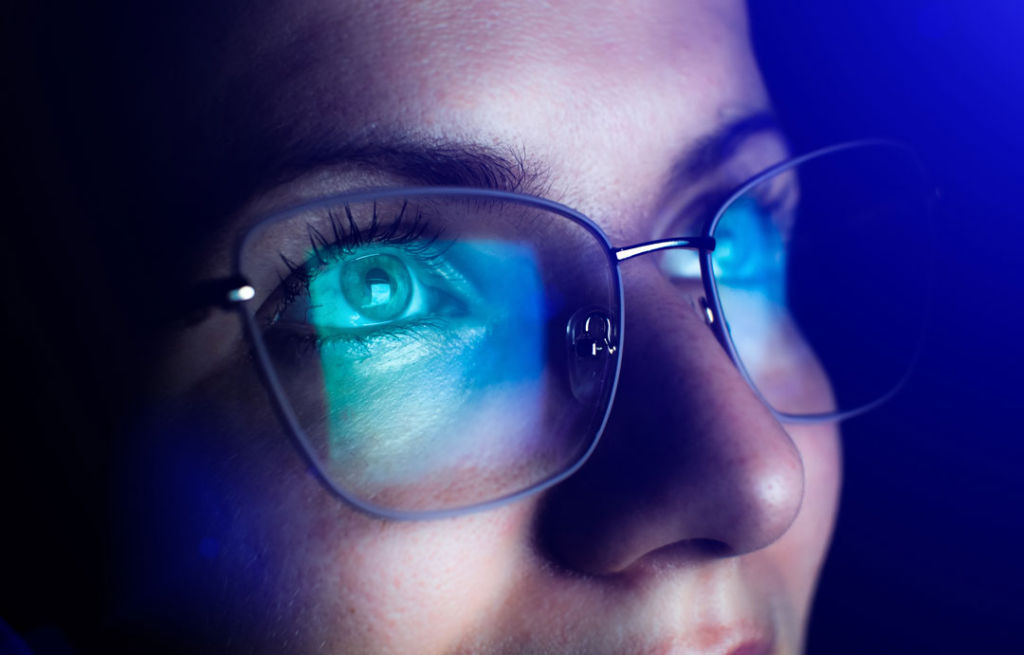Have you ever felt that uncomfortable feeling in your eye? The one that stings and burns? It may be due to dry eyes. Perhaps you are wondering: how? There are several causes of dry eyes, including overly concentrating on certain activities, such as reading, driving, or looking at a computer, and forgetting to blink.
Understanding Dry Eye:
Dry eyes are caused by a variety of factors that affect the healthy tear film. Your tear films have three layers: oils, aqueous fluid, and mucus that keep your eyes lubricated and smooth, resulting in dry eyes if any of these layers is compromised.

Dry Eye Symptoms:
- Stinging or burning,
- Gritty or scratchy feeling,
- Foreign body sensation,
- Red or watery eyes,
- Blurry vision,
- Sensitivity to light,
- Eye fatigue,
- Stringy mucus in or around your eyes, and/or
- Discomfort when wearing contacts.
These are some common symptoms. Any changes in your normal day-to-day routine should be discussed with your local optometrist. A thorough eye exam will reveal the cause and how it can be treated.
Now, let’s address the real question: do dry eyes really cause headaches?
It’s not yet clear how exactly dry eyes and headaches are related. However, evidence points to a higher risk of dry eye disease in those with migraines. For instance, photophobia (sensitivity to light), is most commonly caused by migraines and dry eyes. Dry eye results in an unstable tear film, which can alter light refraction and produce symptoms like headaches.
If you are taking any medications and having both dry eyes and headaches, see a healthcare expert. They may assist in identifying the problem and provide a treatment strategy to avoid negative side effects.
Dry Eye Management & Prevention
Now that we have an idea, you may be wondering if there is a cure for this.
As we all know, dry eye is a chronic condition, thus there is no cure, but there are therapies that can help manage the symptoms. You may need to test many treatment choices to see what works best for you.
The course of treatment will vary depending on a number of factors, including:
- the underlying causes,
- the intensity of your symptoms,
- other medical conditions, and whether you take any other medications.
A healthcare provider can assist in creating a treatment strategy that takes care of both conditions individually or in combination. Treatment options for this could include:
- Eye drops like Thealoz Duo,
- Eye compresses,
- Eyelid hygiene products like Blephaclean and Blephagel, and/or
- Eye surgery.

Some lifestyle changes can also help prevent dry eyes and migraines, including:
- Wearing tinted lenses in sunlight,
- Adding blue blocker light coating to glasses,
- Using a humidifier,
- Limiting screen time,
- Applying warm compresses for dry eyes and cool compresses for migraines,
- Staying hydrated, and
- Getting at least 7 hours of sleep per night.

Concerned about your dry eyes? Schedule a full eye examination today to choose the best dry eye therapy for you and regain your eye comfort!
For more information, concerns or inquiries or to book your next eye exam, get in touch with inFocus Vision Care. It all begins with you taking care of your eyes!


